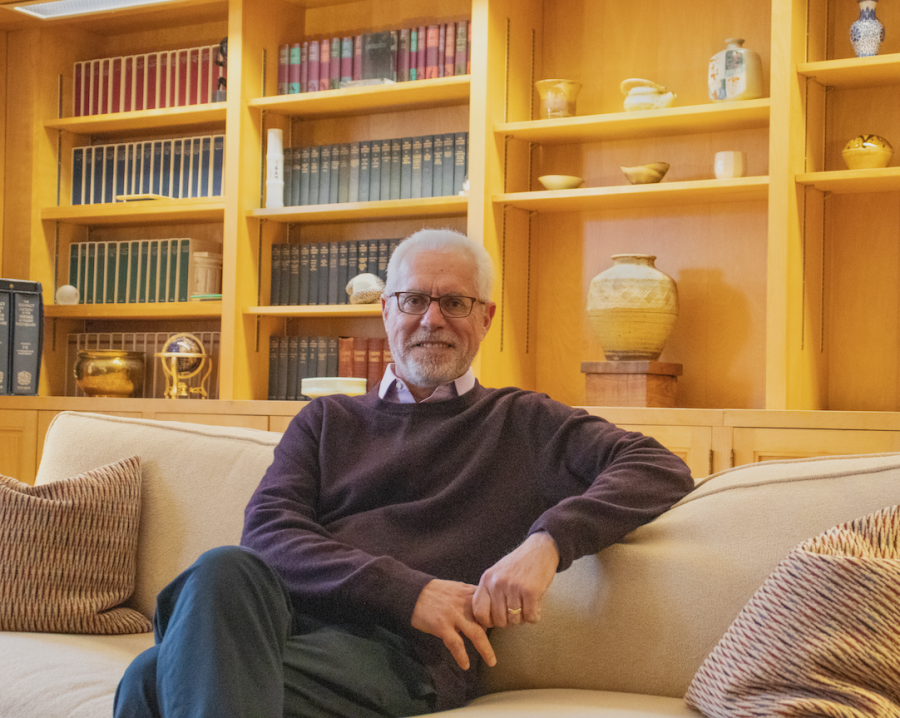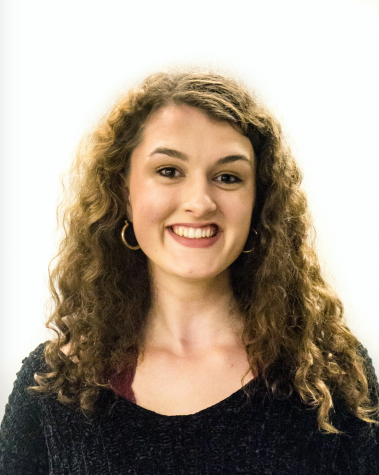Rosenberg lands Harvard residence
February 20, 2020
After his departure from Macalester at the end of the academic year, President Brian Rosenberg will assume a new role: President-in-Residence at the Harvard Graduate School of Education (HGSE) for the fall of 2020.
Faculty Director of the Harvard Graduate School higher education program Francesca Purcell invited Rosenberg to take on the position only two weeks ago, and the official announcement was released to faculty, staff and students on Feb. 10.
In a posting on the Macalester website, Purcell wrote, “We are delighted that Brian Rosenberg is joining us at HGSE this fall. His impressive leadership experience, broad-ranging national service, and influential analyses covering a range of the most pressing contemporary issues in higher education make him an excellent resource for our students.”
The invitation came just in time; he received the email as he and his wife were getting ready to sign a lease for an apartment in the St. Anthony Main neighborhood of Minneapolis.
“So I didn’t sign the lease,” Rosenberg said. “And I talked it over with Carol and we decided that it was too attractive to pass up.”
The HGSE launched the President-in-Residence program in 2001. According to its website, the President-in-Residence, “attends classes, meets with students over coffee or lunch, and advises on everything from paper topics to career choices.”
Past Presidents-in-Residence include Rob Oden, former president of Carleton College and Kenyon College, and Lawrence Bacow, Harvard University president and president emeritus of Tufts University.
Macalester Assistant Director of Admissions Adam Van der Sluis ’11 attended HGSE for his Master’s in Higher Education Administration.
“The President-in-Residence was at every class, and basically just provided perspective on what we were talking about that day,” Van der Sluis said. “I loved it. It was fascinating to have such a first-hand insight into the different topics that we were having that day, whether it was faculty-administration collaboration, higher ed finance [or] fundraising.”
When Van der Sluis attended the program, the President-in-Residence was the former Bowdoin College president Barry Mills. Mills now serves as the deputy chancellor and chief operating officer of the University of Massachusetts–Boston.
“[Rosenberg] has all of this experience as a college president and is also very willing to share that… it’s like a perfect situation in a lot of ways,” Van der Sluis said. “It was very cool to see the news, especially because I know the program. It’s easier for me to envision what that will look like for him.”
At the moment, Rosenberg does not have anything specific that he hopes to pass along to his new students.
“I don’t have any special claim to wisdom, but… my interest is in making sure that they are aware of the main issues that face higher education,” Rosenberg said. “It’s a pretty challenging time and I think the next decade is going to have a lot of disruption in the industry, so if I could help prepare them for that and get them thinking about the right things, that could be helpful.”
During his tenure at Macalester, Rosenberg has spoken openly about increasing access for first-generation college students.
He hopes to have conversations with his students about what it means to bring first-generation college students into higher education.
“I will be interested to see the background of the students at this program, but it’s very easy at a place like Harvard which is… such a place of privilege,” Rosenberg said.
“I want to make sure that students come through that program knowing that Harvard is not typical, and the major issue facing higher education right now, aside from the issue of cost, is the dramatic inequality of access,” he continued. “If we could have more higher education administrators and leaders thinking about that, that can only be a good thing.”
During the week, Rosenberg will be sitting in on a weekly 3-hour seminar, giving guest lectures and advising students. While he’s not tending to those tasks, he hopes to pursue other projects. He is even considering writing a book.
“One of the nice things about this is I get an office, and there is not the kind of minute-to-minute pressure that there is in a job like this, so one of the things I would like to do is write a book about higher education that is a little bit more unfiltered than I can write when I am actually a college president,” Rosenberg said.
“And I would like to spend some time, especially on the weekends, just driving around… Fall in New England is supposed to be really nice,” he continued. “Maybe go to a couple of Red Sox games, even though I hate the Red Sox.”
At the end of his term in December, Rosenberg hopes he will have his next project lined up. At the moment, he has nothing planned for the end of his appointment.
“I’m going to have to figure out what I’m going to do with the rest of my life,” Rosenberg said. “Where I’m going to live, and all of those things. We have literally no plans beyond December of 2020. But I think… whatever is meant to happen will happen.”














